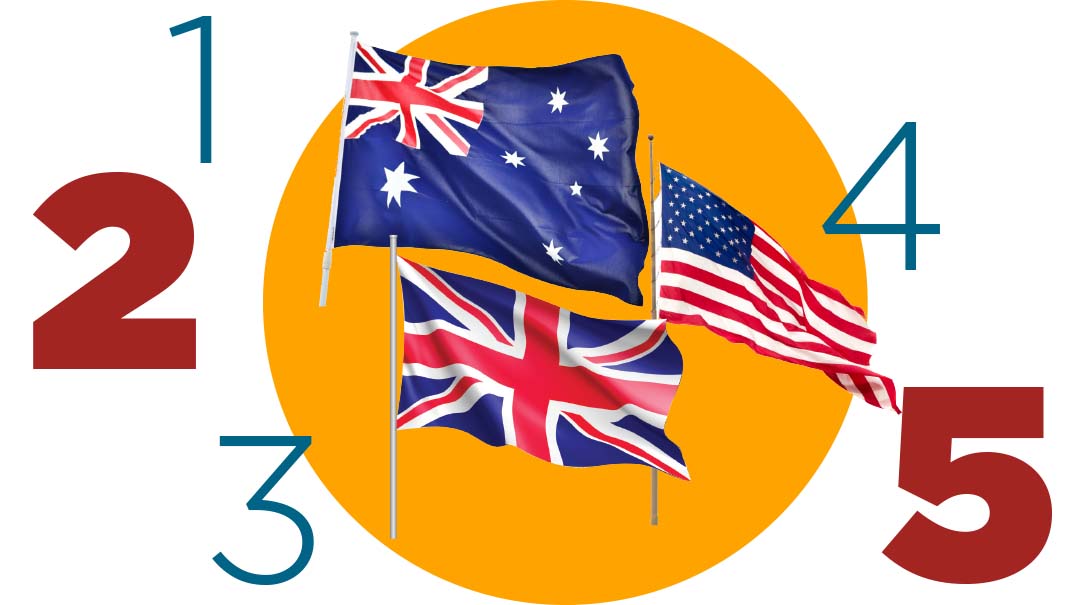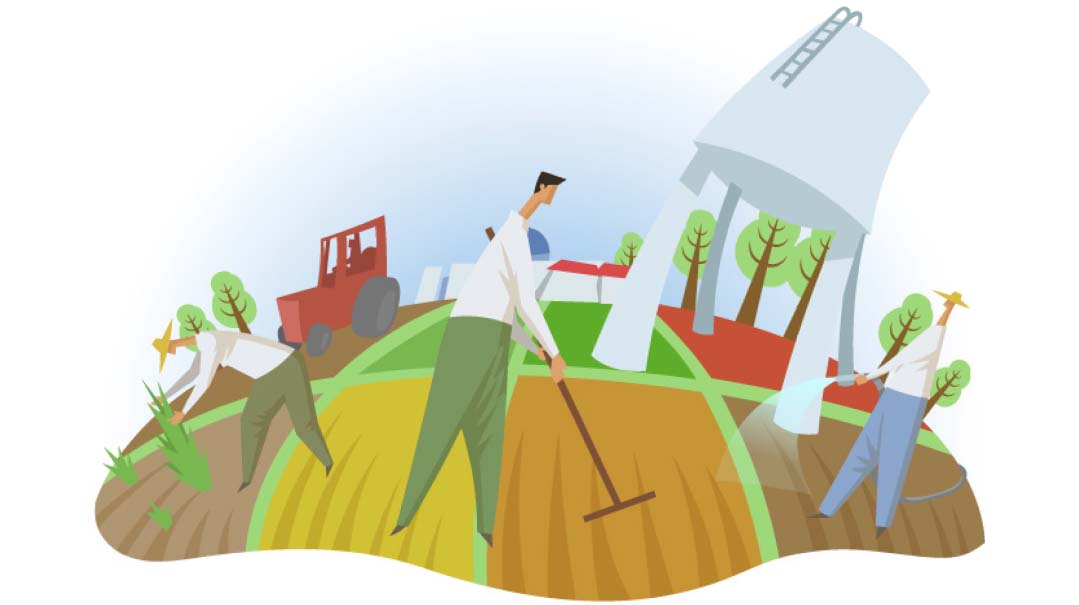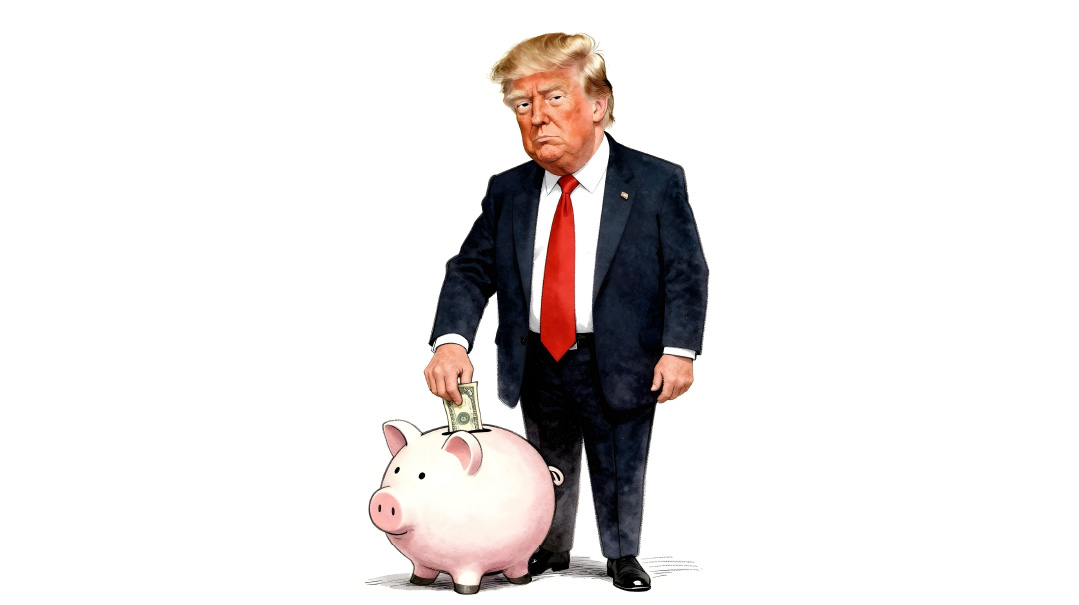Biden’s Bold Play Down Under

Will a bold stroke against China turn the page on Afghan failure?

5 Takeaways
Gliding along far below the ocean surface, nuclear attack submarines are designed to be silent killers, hunting down enemy ships before vanishing into the shadowy deep.
So it’s ironic that a multibillion-dollar deal to supply Australia with the stealthy vessels is making waves. Not only is China — the intended target of the advanced weaponry — up in arms. The deal has also ruptured America’s relations with France, and showcased a nascent Anglosphere alliance to confront the Chinese in the Indo-Pacific, as Biden moves to put the Afghan disaster behind him.
- Beijing bully The background is Communist China’s relentless military expansion, which has put Australia on the front lines of a new cold war. The two countries’ relationship has deteriorated since 2018, despite massive trade. First came Chinese belligerence in the South China Sea; then Australia banned Chinese firm Huawei from supplying critical communications kit for fear of compromising Australia’s networks; and then Canberra’s’s call for investigations into Covid’s origins infuriated Beijing. Party mouthpieces have responded with extraordinary rhetoric against Australia, such as reminders that the country lies within range of Chinese ballistic missiles.
- Nuclear option The dramatic response to those threats came last month, with President Biden’s announcement of a new three-way security pact between the US, UK, and Australia. The agreement, known as AUKUS, will see America and Britain help Australia build its own nuclear-powered submarine fleet, including advanced technology transfers at a cost of almost $100 billion. The impetus behind the deal, Australian prime minister Scott Morrison explained, was that “the relatively benign security environment that Australia has enjoyed over many decades is behind us.”
- America all-in The real meaning of the pact, said Sam Roggeveen of the Lowy Institute, an Australian think tank, is what it indicates about America’s commitment to the fight against a rising China. “The US has only ever shared this technology with the United Kingdom, so the fact that Australia is now joining this club indicates that the United States is prepared to take significant new steps and break with old norms to meet the China challenge. I have been skeptical of the idea that the United States really wanted to enter a cold war with China, but this announcement is significant evidence that it is indeed prepared to take such a momentous step.”
- French fury Even more furious than China has been France, who signed a contract in 2016 to supply the Australian navy with less advanced diesel-electric subs. Canberra notified Paris that it was canceling the deal mere hours before the AUKUS pact was announced. French president Emmanuel Macron hit back by recalling ambassadors to both Australia and the US – remarkably, for the first time since American independence. The fit of pique wasn’t just about the loss of $40 billion in trade, but fury at being blindsided by America’s geopolitical realignment. The latest display of US contempt for Europe will reinforce Macron’s contention that the EU needs to develop its own military power independent of the US and NATO.
- Afghan aftershocks Lastly, although the deal was reportedly discussed for months, it’s hard not to see in the suddenness of the announcement an attempt by the Biden administration to reset the agenda after the Afghanistan debacle. Dating back to the Obama-era “pivot” to Asia, the declared aim of America’s disengagement from the Middle East has been to counter China’s rise. By pledging to arm a China-facing ally with game-changing weaponry mere weeks after the fall of Kabul, Joe Biden is giving that commitment teeth.

Cat + cream
The strangeness of Israel’s left-right-Arab government may be wearing off, but the sight of MK Walid Taha — a man reported to have repeatedly supported terrorists — acting as head of the Knesset’s Interior Committee will take some getting used to.
Recently asked what his Arab Ra’am party would do if another Gaza war broke out, Taha indicated that they would remain in the coalition. “If we left the coalition, would the next government be better for Gaza?” he asked.
There’s no knowing whether Taha’s position would stand the test of Israeli airstrikes over Gaza City, but until then, his muted rhetoric should fool nobody.
Not only has Naftali Bennett fed the Ra’am cat a rich diet in the form of NIS 50 billion of funding. As head of the Knesset committee dealing with Israel’s internal security, the pro-Palestinian Taha is the definition of the cat guarding the cream.
What he said
“By 2021, we will see autonomous vehicles in operation across the country in ways that we only imagine today”
—former US secretary of transportation Anthony Foxx in 2016
What he meant
In retrospect, that wildly optimistic prediction illustrates just how great the hype was surrounding self-driving auto technology just five years ago. Investors piled enormous funding into the sector. According to McKinsey, carmakers invested $120 billion in autonomous drive between March 2017 and March 2019. As the end of 2021 draws lose, there are more signs of trouble than triumph for the technology. Tesla, the poster boy for auto startup success is on track to sell 750,000 of its premium electric cars this year. But it’s techie core — the so-called “Autopilot” autonomous drive feature — is under investigation by American regulators for a series of crashes. Self-driving cars, it seems, are no longer just down the road.

$1.4 billion
is the value of Israel’s agricultural exports in 2019, a growth of 0.7% compared with 2018.
But whereas the country’s silicon chip exports are far more lucrative than that of its potato chips — approximately 32 times greater at $45 billion — the continued innovation and quality of the country’s agricultural sector is an important source of revenue.
And for Jewish customers, especially across Europe, the fact that Dod Moshe (the Israeli equivalent of Old MacDonald) is such a proficient farmer means that shemittah issues are just as likely to crop up on the shelves of Tesco or Carrefour.
Sources: Agrotech, Israel Innovations Authority
(Originally featured in Mishpacha, Issue 879)
Oops! We could not locate your form.







